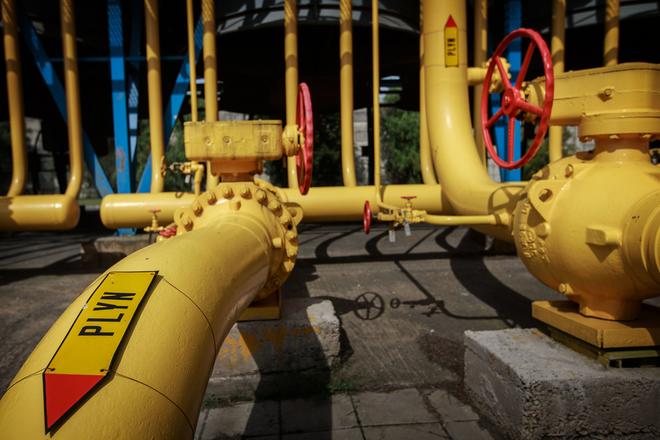After the taps on pipelines pumping Russian gas into Europe through Ukraine were suddenly turned off by the Kremlin in 2009 over a pricing dispute, Slovakia made some major changes to its gas infrastructure, setting up a reverse flow from Western Europe and new connections to pipelines in neighbouring countries.
But, as the spectre of a cut off of Russian gas rears its head once again, experts point out these measures merely diversified the routes of a gas flow that still originated in the same place, and which meant Slovakia continued to be one of the most Russian gas-dependent countries in Europe.
And, they say, it remains in a perilous position if the taps are turned off again, with gas fuels making up a quarter of Slovakia’s energy mix.
“The war [in Ukraine] has irrevocably destroyed confidence in Russian natural gas,” Ján Klepáč, former executive director of the Slovak Gas and Oil Association (SPNZ) and current advisor of its presidium, said.
Speaking during a workshop on the impact of the conflict in Ukraine on Slovakia organised by SPNZ, he added: “While the issue of security of supplies resonated after the crisis in 2009 and also after 2014 [when Russia annexed Crimea], it was gradually forgotten about and pushed back by the Green Deal.”
The expert said Slovakia should now look for gas supplied from other sources, either natural gas from Azerbaijan or liquid natural gas (LNG) from the US or Qatar, alternative gases such as biomethane and hydrogen, or consider an extension of domestic natural gas production or increasing energy effectiveness.
Energy experts and manufacturing and gas industry chiefs have warned though that while many politicians are pushing for an immediate embargo on imports of Russian gas as part of sanctions designed to stop its aggression in Ukraine, such a move would cause huge problems for Slovakia.
“It is not possible to disconnect from Russian gas immediately without jeopardizing energy security, economic development and, let’s be honest, our own comfort,” said Klepáč.



 The gas pipeline operator Eustream operates pipelines with the capacity 90 billion m3. (source: SME)
The gas pipeline operator Eustream operates pipelines with the capacity 90 billion m3. (source: SME)